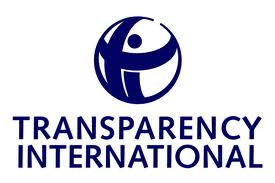 G20 officials meeting in Australia later this year must make it harder for the corrupt to hide behind secret companies, Transparency International said today as it launched a global campaign to “unmask the corrupt”.
G20 officials meeting in Australia later this year must make it harder for the corrupt to hide behind secret companies, Transparency International said today as it launched a global campaign to “unmask the corrupt”.
Today many leading economies do not require or record information about who really owns or controls companies registered in their country, making it easier for corrupt individuals, terrorists or organised criminals to hide and shift their stolen wealth.
“By making it mandatory for business registers to include information about the ultimate “beneficial owner” and making that information public, G20 governments will help to ensure that law enforcement and the public know who really benefits from every company registered on their soil,” said Transparency International Chair Huguette Labelle. “It is time to unmask the corrupt who hide their identity and stolen wealth behind layers of secret companies and enjoy a life of luxury with impunity”.
The call for action on secret company ownership comes just ahead of a global meeting of NGOs in Melbourne – the Civil Society 20 (C20) Summit. Huguette Labelle will speak about how Transparency International will harness its more than 100-country global network to halt illicit financial flows stolen through the abuse of power, bribery and secret deals.
Secret company ownership is a problem that goes much further than tropical tax-havens, Transparency International warned. A lack of rules on beneficial ownership also prevents the publication of important information in key G20 financial centres. At the moment, 77 per cent of business registries in the European Union do not collect the names of the real beneficial owners of companies.
This leaves the door open to abuse. A World Bank report said that among the 213 cases of grand corruption studied over the last 30 years, more than 70 per cent showed ownership of the stolen funds had been disguised through the misuse of corporate entities, half of which were secret companies.
Time for G20 to act on promises
The following recommendations, if taken up, will make a huge leap in unmasking the corrupt and shed light on the secrets of the corrupt, their money and ultimately their power.
- Governments should require information about who ultimately owns, controls or benefits from companies to be included in central business registries and make them public.
- As an immediate measure, governments must require companies bidding for government contracts to disclose who owns, controls or benefits from the company. This helps ensure corrupt officials are not awarding themselves or their friends government contracts without proper scrutiny.
- Countries with direct influence over secrecy jurisdictions should ensure that they establish public registers including beneficial ownership information.
- Bankers, financial institutions, lawyers and accountants must ensure they are not complicit in corrupt acts by undertaking full due diligence measures. Real estate agents, casinos and other such professions must also ensure they do comprehensive background checks and due diligence on the people and companies they work with.
The G20 have already committed to adopt new high level G20 principles to prevent the misuse of legal entities, currently being drafted by the G20 Anti-Corruption Working Group. It’s crucial that these principles include concrete steps to make it harder for the corrupt to hide their identity behind corporate structures.
“After the financial crisis the G20 took on the role of making the global financial architecture more transparent and stable. Making companies more transparent, so that they cannot be used to hide the proceeds of crime and corruption is a responsibility of the G20,” said Labelle.
Transparency International is the civil society organisation leading the fight against corruption
For daily anti-corruption updates follow us on:
Twitter: twitter.com/anticorruption
Facebook: facebook.com/transparencyinternational
Flickr: flickr.com/transparencyinternational
Google Plus: plus.google.com/+transparencyinternational
